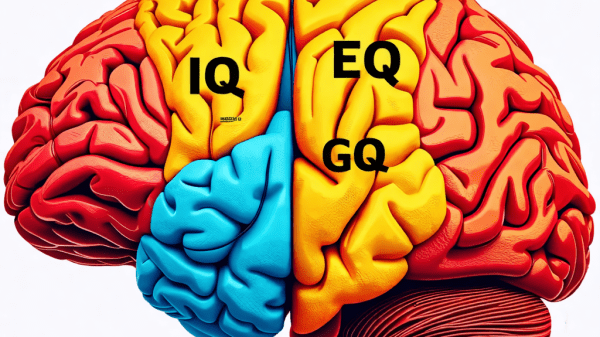In today’s fast-paced business landscape, leaders are tasked with driving innovation, adapting to new technologies, and implementing organizational change. While many excel in handling technical aspects—like optimizing workflows or introducing new products—they often stumble when it comes to people-driven transformations. Change that requires shifts in behavior, culture, and group dynamics presents a unique challenge. This is where group intelligence (GQ) comes into play, a skill that enables leaders to navigate complex human ecosystems and drive lasting change.
Drawing parallels between ecosystems in nature and organizations, the concept of GQ provides a blueprint for leaders to understand and intervene in group dynamics effectively. By harnessing group intelligence, leaders can move beyond intellectual (IQ) and emotional intelligence (EQ) to create environments that support collective problem-solving and innovation.
The Limits of IQ and EQ in Organizational Change
Intellectual and emotional intelligence are vital components of leadership, but when dealing with change in complex human systems, they often fall short. IQ allows leaders to tackle logical, technical problems—such as drafting business plans or redesigning a product—but it does not provide insight into how people will react to these changes. EQ, on the other hand, helps leaders manage relationships and emotions within the workplace, yet it doesn’t fully address group dynamics at the systemic level.
Successful change leaders understand that large-scale transformations require more than individual intelligence. They must tap into the collective intelligence of their teams, departments, and organizations. This is where group intelligence becomes indispensable—allowing leaders to guide groups in identifying underlying issues and making informed, cohesive decisions.
Understanding Group Intelligence (GQ) and Its Role in Transformation
Group intelligence, or GQ, goes beyond individual capabilities. It is about understanding the power of collective decision-making, recognizing patterns in group behavior, and fostering collaboration. Just as bees work together to find a new hive by relying on a coordinated decision-making process, humans in organizations can use collective input to find the best solutions.
Organizations are complex ecosystems, often appearing chaotic and unpredictable. Leaders may feel like they’re pulling different threads—whether it’s addressing a performance dip or handling internal conflict—without achieving meaningful progress. GQ helps leaders step back, observe the entire web of interactions, and identify patterns that can lead to breakthroughs.
Incorporating group intelligence doesn’t mean relinquishing control; it means strategically empowering teams to contribute to the decision-making process. This approach not only uncovers hidden insights but also increases buy-in from the group, leading to smoother transitions and more effective change initiatives.
Cultivating Group Intelligence for Sustainable Change
To effectively leverage GQ, leaders must adopt a holistic view of their organizations, much like beekeepers observing the behavior of their hive. Leaders with high group intelligence are able to detect subtle yet deeply embedded patterns within the workforce. These patterns often hold the key to unlocking change that is both meaningful and sustainable.
For instance, a company struggling with disengaged employees might discover, through collective intelligence, that a lack of communication is at the heart of the issue. Rather than imposing top-down solutions, successful leaders allow employees to identify and implement their own strategies for improving communication. This collaborative approach ensures that the changes are relevant and supported by those who will be most affected.
Visualizing the potential for change also involves making small, intentional interventions rather than broad, sweeping reforms. By observing how these small changes influence the broader ecosystem, leaders can adjust their strategies in real time, fostering continuous improvement.
In a world where business environments are increasingly complex, leaders must go beyond traditional approaches to change management. While IQ and EQ are essential, they are not sufficient when it comes to navigating the complexities of group behavior and organizational ecosystems. Group intelligence offers a powerful framework for understanding how groups function, making sense of seemingly chaotic systems, and implementing change that sticks.
Leaders who develop and use GQ are not only more adept at identifying patterns in group dynamics but are also better equipped to foster a culture of collaboration, collective decision-making, and sustained transformation. As organizations continue to evolve, harnessing the power of group intelligence will be a critical differentiator for successful leadership.
Saiful Haque is a recent graduate student with an interest in AI and business development.











